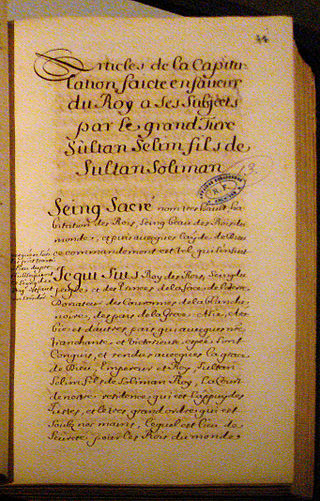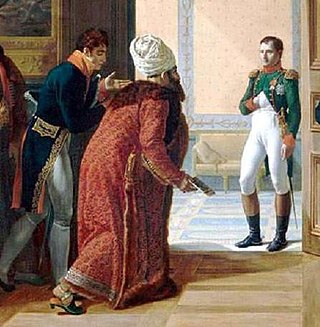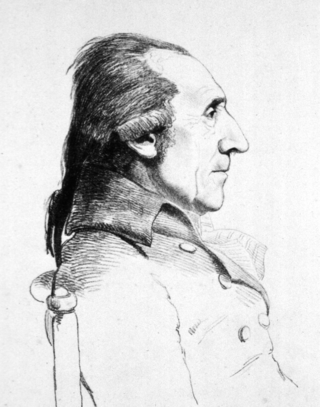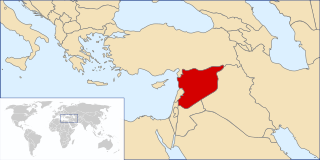Related Research Articles

Merzifonlu Kara Mustafa Pasha was an Ottoman nobleman, military figure and Grand Vizier of Turkish origin, who was a central character in the Ottoman Empire's last attempts at expansion into both Central and Eastern Europe.

Ibrahim Muteferrika was a Hungarian-born Ottoman diplomat, publisher, economist, historian, Islamic theologian, sociologist, and the first Muslim to run a printing press with movable Arabic type.

Capitulations of the Ottoman Empire were contracts between the Ottoman Empire and several other Christian powers, particularly France. Turkish capitulations, or Ahidnâmes were generally bilateral acts whereby definite arrangements were entered into by each contracting party towards the other, not mere concessions.

A dragoman was an interpreter, translator, and official guide between Turkish-, Arabic-, and Persian-speaking countries and polities of the Middle East and European embassies, consulates, vice-consulates and trading posts. A dragoman had to have a knowledge of Arabic, Persian, Turkish, and European languages.

Patrick Russell was a Scottish surgeon and naturalist who worked in India. He studied the snakes of India and is considered the "Father of Indian Ophiology". Russell's viper, Daboia russelii, is named after him.

The Greeks in Syria arrived in the 7th century BC and became more prominent during the Hellenistic period and when the Seleucid Empire was centered there. Today, there is a Greek community of about 4,500 in Syria, most of whom have Syrian nationality and who live mainly in Aleppo, Baniyas, Tartous, and Damascus, the capital. There are also about 8,000 Greek-speaking Muslims of Cretan origin in Al-Hamidiyah.

Christian Ravis (1613–1677) was an itinerant German orientalist and theologian.
Philip Robert Rhys Mansel is a British historian of courts and cities, and the author of a number of books about the history of France and the Ottoman Empire. He was born in London in 1951 and educated at Eton College, Balliol College, Oxford, and obtained a doctorate at University College London in 1978. He has lived in Paris, Istanbul and Beirut and now lives in London.
The Near East earthquakes of 1759 were a series of devastating earthquakes that shook a large portion of the Levant in October and November of that year. This geographical crossroads in the Eastern Mediterranean were at the time under the rule of the Ottoman Empire. The ruins of Baalbek, a settlement in the Beqaa Valley of Lebanon east of the Litani River, were badly damaged. These 1759 events, along with the earlier 1202 Syria earthquake, are likely the strongest historical earthquakes in the region.
Sir George Gerard de Hochepied Larpent, 1st Baronet was a British businessman of Huguenot and Dutch descent and a Liberal Party politician.
Alexander Drummond, was a Scottish consul.
Van den Boogaard is a Dutch toponymic surname meaning "from the orchard". The surname has a very high number of alternative forms. People with this and closely similar names include:
The following is a timeline of the history of the city of Aleppo, Syria.
The Natural History of Aleppo is a 1756 book by naturalist Alexander Russell on the natural history of Aleppo. In 1794 his half-brother, Patrick Russell, revised and expanded the text in a second edition. The book is significant for its quality, the contemporary interest it attracted, and for being a product of the Scottish Enlightenment.

Erik-Jan Zürcher is a Dutch Turkologist. He is a professor of Turkish studies at Leiden University since 1997. From 2008 to 2012 he served as director of the International Institute of Social History. His book Turkey: a Modern History is considered a standard work. Zürcher frequently comments on current issues related to Turkey.
Ottoman studies is an interdisciplinary branch of the humanities that addresses the history, culture, costumes, religion, art, such as literature and music, science, economy, and politics of the Ottoman Empire. It is a sub-category of Oriental studies and Middle Eastern studies, and also Turkish studies.
Thomas Backhouse Sandwith (1831-1900) was a member of the British consular service in the Levant. He was a Vice Consul in Syria 1857 to 1865, and then Vice Consul in Cyprus between 1865 and 1870. He was Consul in Chania, Crete from 1870 to 1885, in Tunis 1885 to 1888 and Consul-General in Odessa 1888 to 1891.

George de Hochepied, 6th Baron de Hochepied was an English soldier and Whig politician.
John James de Hochepied Larpent, 7th Baron de Hochepied was an English aristocrat of Huguenot and Dutch descent who became a diplomat.
References
- ↑ Maurits H. van den Boogert [ permanent dead link ] at the Digital Biography of Dutch History website
- ↑ Lev, Effraim (2012). "Maurits H. van den Boogert, Aleppo Observed: Ottoman Syria Through the Eyes of Two Scottish Doctors, Alexander and Patrick Russell, The Arcadian Library (New York: Oxford University Press, 2010), pp. 256, ISBN 978-0-19-958856-5". Medical History. 56 (1): 99–100. doi:10.1017/S002572730000034X. ISSN 0025-7273. PMC 3314911 .
- ↑ Woude, A.M. van der (2003). "A. Hamilton, A.H. de Groot, M.H. van den Boogert, Friends and rivals in the east. Studies in Anglo-Dutch relations in the Levant from the seventeenth to the early nineteenth century". BMGN: Low Countries Historical Review . 118 (1): 78–79. doi: 10.18352/bmgn-lchr.5790 . ISSN 2211-2898.